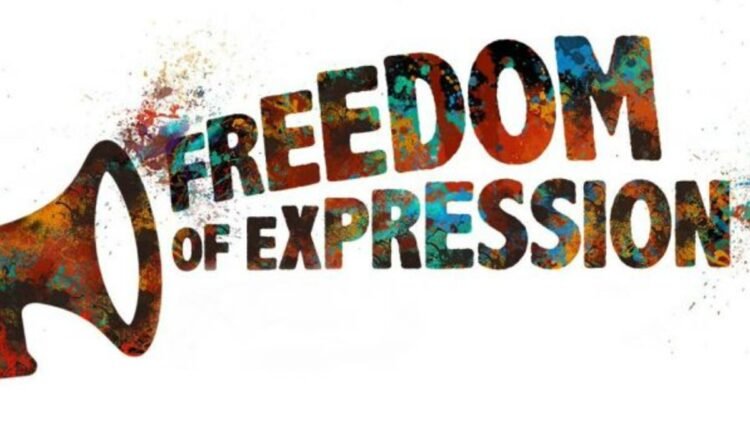Freedom of expression is the right to express beliefs and ideas without censorship or restraint. It is a fundamental human right that allows individuals to speak, write, and express themselves freely.
Freedom of expression is a cornerstone of democratic societies, enabling open debate, critical thinking, and the exchange of diverse opinions. This essential freedom empowers individuals to voice their thoughts, challenge authority, and hold power to account. It fosters creativity, innovation, and the free flow of information, contributing to a vibrant and inclusive society.
Despite its immense value, the right to freedom of expression also brings responsibilities, such as respecting the rights of others and not inciting hatred or violence. Overall, freedom of expression is a vital component of a free and democratic society, essential for individual liberty and societal progress.
Embracing Your Voice
Freedom of Expression is a fundamental human right that allows individuals to embrace their voice and share their thoughts, feelings, and opinions. Personal experiences play a crucial role in shaping expression, as they influence an individual’s perspective and values. Understanding the cultural and social context is essential for advocating for responsible expression while respecting diversity and inclusivity.
Navigating through self-censorship is a common challenge faced by individuals, as they balance the desire to share openly with the need for sensitivity and diplomacy. Embracing freedom of expression entails acknowledging the power of words and creating an environment where diverse voices are heard and respected, encouraging open dialogue and mutual understanding.
Power In Words
The freedom of expression holds immense power in shaping societies and challenging oppressive narratives. It serves as a potent tool for amplifying diverse perspectives and fostering open discourse. When individuals exercise their right to free speech, they contribute to the rich tapestry of ideas and opinions that form the foundation of a vibrant and dynamic society.
Here are several aspects of the power in words:
Persuasion: Words can be persuasive, convincing people to adopt a particular viewpoint, support a cause, or take a specific course of action. Skilled communicators can use language to influence others and achieve their goals.
Inspiration: Words have the power to inspire and motivate. Inspirational speeches, quotes, and messages can ignite passion, instill confidence, and encourage people to strive for greatness.
Education: Words are the primary tool for transmitting knowledge and information. They empower individuals by providing them with the means to learn, understand, and grow intellectually.
Empathy: Words can express empathy and understanding, fostering connections between people. Compassionate and empathetic language helps build relationships and create a sense of community.
Expression of Ideas: Words allow individuals to articulate and share their thoughts, ideas, and feelings. This expression is crucial for personal development, creativity, and collaboration.
Cultural Impact: Words play a significant role in shaping and preserving culture. Literature, poetry, and storytelling contribute to the collective identity of societies and can endure through generations.
Social Change: Movements for social justice often rely on the power of words to raise awareness, mobilize communities, and advocate for positive change. Slogans, speeches, and manifestos can be catalysts for social transformation.
Conflict and Resolution: Words can either escalate or de-escalate conflicts. Effective communication is key to resolving disputes, fostering understanding, and promoting peace.
Self-empowerment: Positive affirmations and self-talk can empower individuals by shaping their mindset, building confidence, and helping them overcome challenges.
Memory and Legacy: Words have the ability to leave a lasting impact. Famous speeches, literary works, and historical documents can shape the memory of individuals and societies, influencing future generations.
The Art Of Advocacy
The freedom of expression allows individuals to convey their thoughts and feelings through various platforms, including art and advocacy. Artistic expression has the power to fuel activism and create dialogue for social change. By utilizing these platforms, individuals can raise awareness about issues that matter to them, inspire others to take action, and foster meaningful discussions within the community.
Freedom Of Expression: Unlocking Your Voice
Expressing oneself is a fundamental human right, enabling individuals to share their thoughts and ideas with the world. Through self-expression, one can find empowerment and assert their unique identity.
Overcoming fear and self-doubt is integral to this process, as it allows individuals to freely communicate their thoughts without reservation. Embracing freedom of expression enables individuals to engage in meaningful dialogue and contribute to diverse perspectives in society.
A New Way Of Thinking That Emphasized Reason, Philosophy, And Human Rights
Frequently Asked Questions For Freedom Of Expression
What Is Freedom Of Expression?
Freedom of expression is the right to express one’s thoughts and opinions without censorship or restraint.
Why Is Freedom Of Expression Important?
It is crucial for fostering creativity, innovation, and a democratic society by allowing diverse voices to be heard.
What Are The Limits To Freedom Of Expression?
The limits include hate speech, defamation, incitement to violence, and obscenity, which are restricted for societal well-being.
How Does Freedom Of Expression Benefit Society?
It promotes open dialogue, transparency, and the exchange of ideas, leading to social progress and greater understanding.
How Can Individuals Exercise Their Freedom Of Expression?
They can do so by speaking out, writing, creating art, participating in peaceful protests, and supporting free media.
Conclusion
In a world full of diverse viewpoints, freedom of expression is essential. It allows individuals to speak their minds, foster creativity, and promote understanding. Embracing this freedom enriches society and paves the way for progress. Let’s continue to uphold and protect this fundamental right for a better, more inclusive world.



